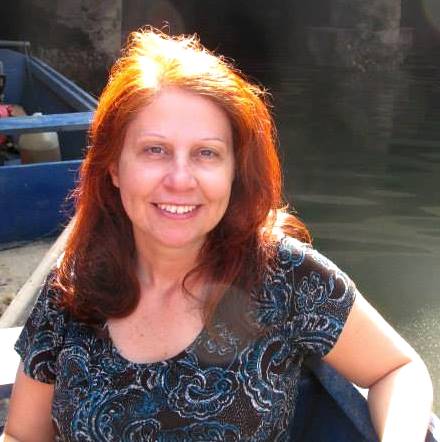Cintia Nascimento
About
 Cintia is a master’s candidate in International Development Studies at Saint Mary’s University, who was awarded the Robin Rigby Trust grant for her field research conducted at Vila dos Pescadores community in Brazil (2014 and 2015). While enrolled as an undergraduate student at the Federal University of Santa Catarina in Southern Brazil, her major was Agronomy with research on mussel farming as a livelihood option for fishers due to the decline of fisheries in the area. Cintia has a long-time fascination with fisheries science and management, and international development, and developed at an early age a sense of concern for social justice for vulnerable groups in the world. On her PhD in Applied Science at SMU, she will conduct research on fisheries conservation that involves impoverished artisanal fishers in Timor-Leste. Cintia is a member of the Nova Scotia Institute of Agrologists, Lusophone Studies Association (LSA), Society for Conservation Biology, and the Canadian Association for the Study of International Development (CASID).
Cintia is a master’s candidate in International Development Studies at Saint Mary’s University, who was awarded the Robin Rigby Trust grant for her field research conducted at Vila dos Pescadores community in Brazil (2014 and 2015). While enrolled as an undergraduate student at the Federal University of Santa Catarina in Southern Brazil, her major was Agronomy with research on mussel farming as a livelihood option for fishers due to the decline of fisheries in the area. Cintia has a long-time fascination with fisheries science and management, and international development, and developed at an early age a sense of concern for social justice for vulnerable groups in the world. On her PhD in Applied Science at SMU, she will conduct research on fisheries conservation that involves impoverished artisanal fishers in Timor-Leste. Cintia is a member of the Nova Scotia Institute of Agrologists, Lusophone Studies Association (LSA), Society for Conservation Biology, and the Canadian Association for the Study of International Development (CASID).
Research Interests:
- Community-based fisheries co-management
- Natural Resource management
- Fisheries science
- International development
Place
The community of Vila dos Pescadores is an impoverished neighbourhood located in a mangrove area in the city of Cubatão, Southeast Brazil. The community is located in the Santos estuary, where many of the people living in the community use the mangroves for artisanal fishing with exploration of shellfish and finfish, which is an important source of income for community members. For many populations in the mangrove slums of Cubatão, artisanal scale fishing contributes to their food security.
Research
At Saint Mary’s University, her International Development Studies master’s thesis research focuses on the factors that affect fishers’ and community members’ wellbeing at the community of Vila dos Pescadores. The social inequalities in Brazilian society affect how fishers and community members can achieve wellbeing, especially in facing environmental issues. The Santos estuary is prone to environmental disasters due to the port of Santos and the Cubatão industrial Hub. The analysis of community and fishers’ wellbeing is important at policy level to allow interventions such as selective urbanization and the involvement of fishers in conservation initiatives.
Key Publications
- The Robin Rigby Trust – Class Differences and Racism – Social, Ethnic and Economic Inequalities Leading to Poverty: A Case Study of Mixed-race Northeastern Migrant Populations Living in the City of Cubatão, São Paulo State, Southeast Brazil. The Lusophone World in Progression: Historical Legacy, Transnationalism & Development in Globalized Contexts, Halifax, June 28 – July 1, 2015.
- Impact of Environmental Degradation on Fishers’ Livelihoods – the Case of a Brazilian Mangrove Community Located in an Industrial Area, Vila dos Pescadores. Crossing Horizons, 2nd Community Conservation Research Network Meeting, Tofino, BC, June 1 – 5, 2015.
- Community Co-Management in a Migrant Mangrove Community – A Viable Option in an Unequal Society? A Case Study of Vila dos Pescadores, City of Cubatão, São Paulo State, Brazil. Empowerment Student Conference, Saint Mary’s University, Centre for the Interdisciplinary Study of Culture (CISC), Halifax, February 6, 2015.
- Nascimento, Cintia, Ferreira, Jaime Fernando, and Aimê Rachel Magalhães. Environmental Parameters in Different Mussel Culture Densities. Journal of Medical and Applied Malacology 8.1 (1996): 158. Print.


